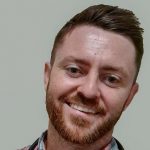
Jamie Cash
Indigenous Health Scholarship
Griffith University, QLD
Doctor of Medicine
Scholarship Awarded 2021 – 2022
Sponsored by:
Rotary Club of Runaway Bay
How will I contribute to improving Indigenous health as a qualified medical practitioner or health worker?
My main motivation for wanting to become an Aboriginal doctor originates from my upbringing in the Gold Coast Queensland. Like any child I had my ups and my downs, all of the best times were spent with my family and friends. In the bad times I experienced homelessness, poverty and loss. Some of these losses which really resonated with me as a child included watching the complications of people, I loved faced with breast cancer. These good and bad times all contributed to shaping my personality and now has become the main drive behind me wanting to become a good doctor.
As I got older it became apparent that 1 in 11 Indigenous women will develop breast cancer and that breast cancers make up 25% of all cancers in Indigenous women. I now know it’s my purpose to address these discrepancies for my people.
As a doctor I want to help women faced with breast cancer to regain self-confidence. I truly believe that helping these people, in this way can help change their entire outlook on life after surgery. I want to advocate for women and be a strong ally in their remission and recovery post mastectomies.
In addition, I plan to start undertaking Indigenous breast cancer medical research to contribute to the scientific community and ensure that the bid to closing the gap is irrevocably closed.
Equally, I would like to be part of the healthcare debate and hold a key role ensuring that people living in rural and remote communities all have access to cost-effective healthcare.
I appreciate these issues are all part of a marathon, however if I can fulfil even a small part in the solution then I will have succeeded. I still have a long way to go in achieving this but with determination, flexibility and perseverance I know I can achieve these goals.
Current Progressive Report
My first clinical placement for the year began in a General Practice. I missed the first two weeks as the GPs had COVID. This put me behind schedule on assessments as the GP rotation is assessment heavy with presentations and a research assessment component within the 7 weeks. I ended up doing 4 days per week to catch up on missed time and was able to finish all assessment items on schedule due to the GPs being a great help with finding good patient participants for me early on. Overall, I enjoyed my GP placement as the patient encounters were quite different to the usual hospital presentations I was used to.
In my second rotation I was on orthopaedics. This included many hours in surgical theatres, and when not in theatre I was in fracture clinic following-up and assessing fractured bones for ongoing management. I felt way out of place here, as I would imagine being the patient, waiting for up to or more than an hour only to see a student that only vaguely knows what he was doing. I did however get to assist in many surgeries, a lot of the time holding shattered bones in place while the surgeon would be drilling screws into them to hold them in place, and as you could imagine most of the time covered in blood. Unfortunately, my time in orthopaedics was cut short by 3 weeks as a family situation required me to take the remainder of the block off to attend to it. I will be making this missed time up at the end of the year.
My final rotation before the mid-year break was in cardiothoracic surgery. This rotation was eye-opening to say the least. I had somewhat of a realisation of the insignificance of what I contribute to a patient’s overall management. In cardiothoracic surgery, depending on the procedure, the surgical team cuts open the chest cavity, makes incisions in the main vessels to bypass the circulation past the heart, and stops the heart altogether to perform the required surgery on the heart all before kickstarting the heart to get going again. Initially I was amazed by the work the surgeons were doing, but the more I seen, the more desensitised I became and started taking it for granted the experience I was lucky enough to have been gifted. It came back to me when outsiders were coming into the theatre to see surgeries and I was the one explaining the procedures to them as they were happening and seeing the amazement of their faces reminded me.
I look forward to graduating in December.